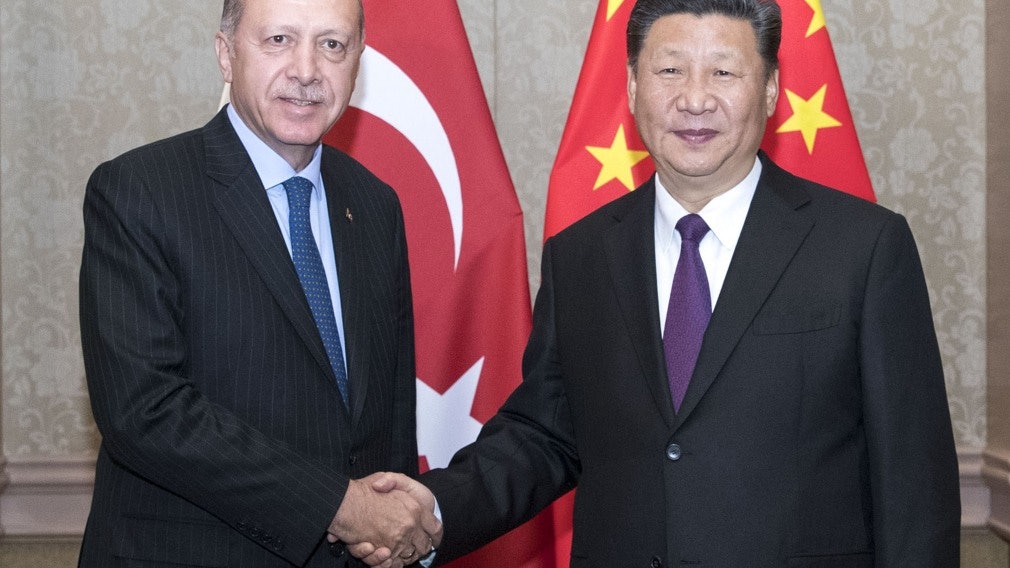On July 2, Turkish President Erdogan visited China and met with Chinese President Xi Jinping.
Recep Erdoğan has met with Xi Jinping during the fifth summit of the Asia Conference on Interaction and Confidence Measures in June, and attended the G20 Osaka Summit. What are the frequent contacts?
The “late” of the Turkish political powerhouse?
Recently, Erdogan accepted a lot of “bad news.”
The first is the election defeat in Turkey. On June 23, the local elections in Istanbul held at the end of March this year were re-elected at the request of the ruling party, but the result was not as Erdogan’s wish. Opposition Republican People’s Party candidate Enkrem Imamoglu further extended its March lead from 14,000 votes to 775,000, with a 54% vote, and Erdogan’s support of Yıldır Binali Yildirim was defeated.
Erdogan once said that whoever won Istanbul would win Turkey. In this way, Erdogan, who once served as mayor in Istanbul and has a strong track record, has been hit hard in this key city. This is the first time in 25 years that the ruling party has lost its dominant position in the region.
Then, Erdogan’s own party was also split. Erdogan’s Orthodox elders, former Deputy Prime Minister and Treasury Secretary Ali Babacan publicly stated that they will establish a new center-right opposition party within three months, adhering to moderate Islamism, constitutional parliamentary system And the line of pro-Europeanism and economic liberalism.
Babacan rejected the position of cabinet minister provided by the Orthodox Party and submitted a letter of resignation to the Orthodox Party. It is reported that 60 to 80 members of Congress including the former President of Turkey will choose to join the new party, and even let the AKP lose the majority of the parliament and be forced to advance elections.
Moreover, the geopolitical situation is still tense, and Turkey’s big country ambition seems to be experiencing a rebound.
On the one hand, Libya accused Turkey of interfering in its internal affairs, and the National Army almost declared war on Turkey. On July 1, Turkey said that six citizens of the country had been detained. On the other hand, at the end of June, the conflict between Turkey and Syria escalated. The Russian-Syrian coalition forces were armed in the relegation zone of the northern Syrian conflict. Two Turkish soldiers were killed and three others were injured.
In the context of the domestic economic crisis, Turkey is still active in the geopolitan hotspots in the Middle East. This inevitably raises concerns about the Erdogan government – the enthusiasm of Turkey? Is the era of Erdogan going to pass?
Erdogan who needs multiple guarantees
Erdogan has always understood how to get around the corner and use diplomatic speculation to resolve the crisis. It is no exception now.
Prior to his visit to China, Erdogan publicly stated that the delivery of the Russian S400 air defense system would be completed within 10 days. From the G20 summit, Erdogan did not give up due to the threat of the United States.
Erdogan has said with confidence several times that Turkey will not be copied by the United States. At the just-concluded G20 summit, US Presidents Donald Trump and Erdogan took the lead and the two met in a bilateral meeting. Trump still said that the S400 system was an absolute “problem”, but It is also said that this was the mistake of former Barack Obama who did not sell Turkish missiles, not Erdogan’s fault.
Erdogan swam between the United States and Russia. If he said that he could purchase the S400 and avoid the US sanctions, then this is his political achievements in security and defense, which gives Turkey a more military guarantee.
In 2018, on the eve of the Turkish lira plunging, Erdogan announced that he would issue panda bonds in China and use the renminbi instead of the US dollar or the euro to raise funds to diversify the sources of funds and seek important trading partners with China and Russia. Local currency is traded instead of US dollar.
On July 1, Erdogan called with Japanese Prime Minister Shinzo Abe to “make Japan invest more in the field of rare earths and base metals (Turkey).” It can be seen that he hopes that the desire for economic benefits through diplomacy is strong.
Looking back at Erdogan’s visit to China last year and his meeting with Xi Jinping in June, he also talked about the cooperation between the two sides on the “Belt and Road” and expanded cooperation in economy, trade, finance and infrastructure construction. It is helpful to the Turkish economy.











